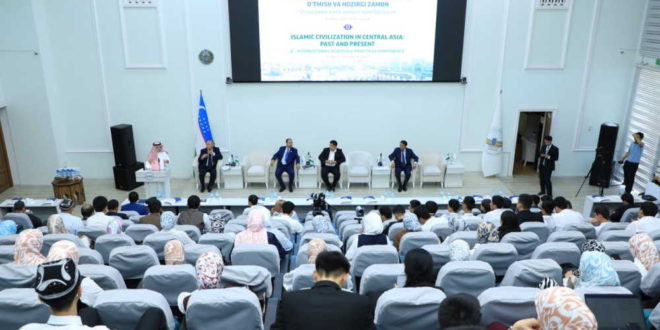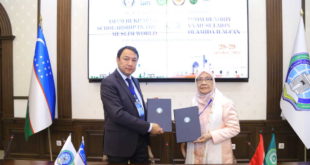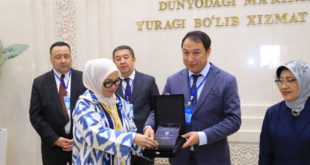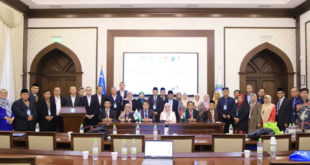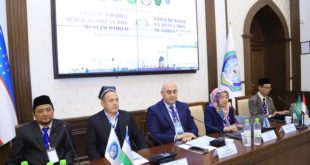On September 16, the VI International Scientific-Practical Conference on the theme “Islamic Civilization in Central Asia: Past and Present” was held at the International Islamic Academy of Uzbekistan. The event was jointly organized by the Committee on Religious Affairs of the Republic of Uzbekistan, the International Islamic Academy of Uzbekistan, and the Research Center for Islamic History, Art and Culture (IRCICA). It brought together Islamic studies scholars, historians, cultural experts, as well as local and foreign researchers.
The main focus was directed toward the role of Central Asia, particularly the region of Mawarannahr, in the development of Islamic science and spiritual life.
The conference featured presentations on Abu Rayhan al-Biruni’s contribution to the advancement of science and Islamic civilization, the dynastic scholarly schools that emerged in Transoxiana, and the activities of hadith scholars and jurists. Discussions also addressed the teachings of Sufism and al-Hakim al-Tirmidhi’s views on ʿilm al-nafs (science of the soul), issues of spiritual education, Islamic institutions of the Qarakhanid era, and the study of historical processes through epigraphic sources.
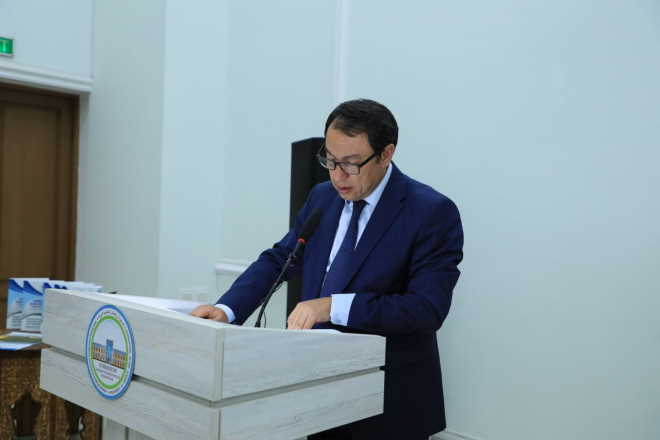
At the conference, Dr. Shovosil Ziyodov, Doctor of Historical Sciences, Professor, and Director of the Imam Bukhari International Research Center, delivered a lecture on the theme “The Role of Waqf Libraries in Studying the History of Medieval Bukhara.”
In his presentation, the scholar spoke in detail about the emergence of libraries in ancient Bukhara and their role within Islamic civilization. He also provided historical insights into dynastic libraries of the Samanid era, including the library associated with the reign of Amir Nuh ibn Mansur and the scholarly activities connected to it.
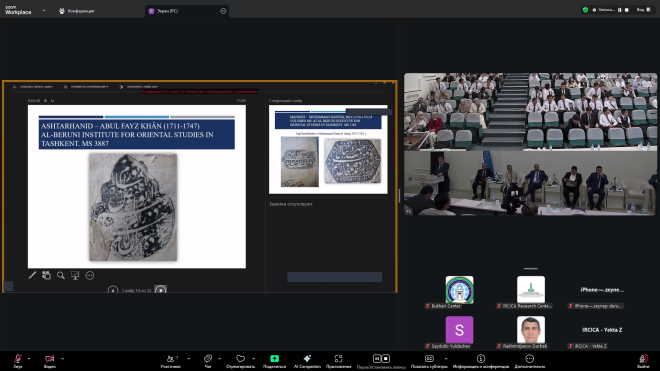
Sh. Ziyodov devoted special attention to the library of Khwaja Muhammad Parsa. It was noted that this library held an important place not only as a Sufi center, but also in the collection, preservation, and dissemination of manuscripts representing various schools of thought and scholarly traditions. He emphasized that works bearing the waqf seal provide valuable opportunities to study the religious and intellectual life of the period, norms of eloquence, and cultural values.
In addition, scholarly analyses were presented on the Gaukushan Library and its role within a larger complex that included a madrasa, mosque, pool, and lecture halls. Attention was drawn to the fact that by studying books endowed to such libraries, along with their seals and dates, it is possible to better understand the cultural environment of that era.
It was also highlighted that information contained in manuscripts—regarding their transmission and copying history, as well as the scholarly capacity of the amirs, judges, religious figures, and scholars who authored works or established libraries—underscores the need to reassess the national image and scholarly heritage.
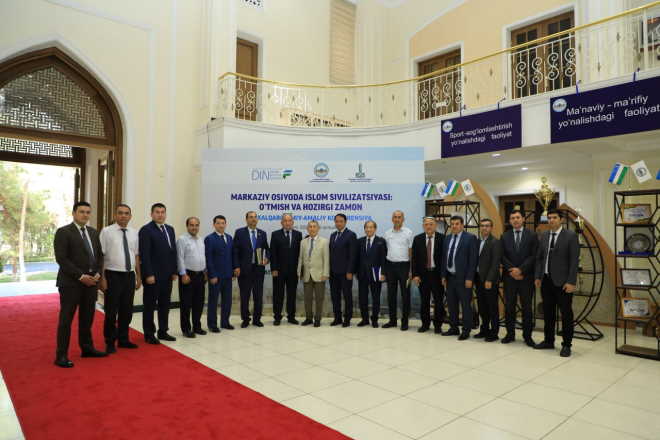
At the conclusion of the event, the participants reached an agreement on the importance of conducting a deeper and more systematic study of Islamic heritage, further strengthening international scholarly cooperation, and enhancing the effectiveness of research in this field.
Imam Bukhari International Scientific Research Center
Press Service
 Imom Buxoriy xalqaro ilmiy-tadqiqot markazi bukhari.uz
Imom Buxoriy xalqaro ilmiy-tadqiqot markazi bukhari.uz







